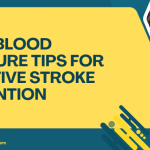Table of Contents
- Understanding Stress and Its Impact on Health
- Chronic Stress and Blood Pressure
- Stress-Induced Inflammation
- The Connection Between Stress and Heart Health
- Behavioral Changes Due to Stress
- Managing Stress to Reduce Stroke Risk
- FAQs
Understanding Stress and Its Impact on Health
Stress is a natural response to challenges or threats, often referred to as the “fight or flight” response. While short-term stress can be beneficial, chronic stress can lead to various health issues, including an increased risk of stroke. The body’s response to stress involves a complex interplay of hormones and physiological changes that can significantly impact cardiovascular health.
According to the American Heart Association, stress can trigger a host of reactions in the body that contribute to heart disease and stroke. Understanding how stress affects our bodies is the first step towards mitigating its impacts.
For more insights on neuro care and brain health, consider reading Top 5 Essential Insights on Neuro Care You Need to Know.
Chronic Stress and Blood Pressure
One of the most well-documented ways stress contributes to stroke risk is by elevating blood pressure. When you experience stress, your body releases hormones like adrenaline and cortisol. These hormones prepare your body for immediate action by increasing heart rate and constricting blood vessels, which can lead to higher blood pressure.
Table: Effects of Stress on Blood Pressure
| Type of Stress | Blood Pressure Impact |
|---|---|
| Acute Stress | Temporarily increases BP |
| Chronic Stress | Sustained high BP |
Why It Matters
Chronic high blood pressure, or hypertension, is a significant risk factor for stroke. It can damage blood vessels over time, making them more susceptible to clots or rupture. Managing stress effectively can help maintain healthy blood pressure levels.
For more information on hypertension, visit the National Heart, Lung, and Blood Institute.
Stress-Induced Inflammation
Inflammation is the body’s natural response to injury or infection, but chronic stress can lead to persistent inflammation, which has been linked to various health problems, including stroke.
When you’re stressed, your body produces inflammatory cytokines, which can damage blood vessels and promote the formation of plaque in arteries. This plaque buildup can lead to atherosclerosis, a condition where arteries become narrow and hard, increasing the likelihood of a stroke.
How It Works
- Cytokine Release: Stress triggers the release of pro-inflammatory cytokines.
- Vascular Damage: These cytokines can cause damage to the endothelial lining of blood vessels.
- Plaque Development: Over time, this can lead to plaque buildup and reduced blood flow.
To learn more about inflammation and its role in stroke, check out the Centers for Disease Control and Prevention (CDC).
The Connection Between Stress and Heart Health
Stress doesn’t just affect blood pressure and inflammation; it can also directly impact heart health. Chronic stress can lead to heart disease, which is closely linked to stroke risk.
When you’re stressed, your heart works harder, and over time, this can lead to conditions such as arrhythmias or cardiomyopathy. Stress can also disrupt your sleep, leading to fatigue and decreased physical activity—both of which can weaken heart function.
Key Points:
- Heart Rate Increase: Stress causes the heart to pump faster.
- Reduced Heart Efficiency: Chronic stress can weaken heart muscles.
- Sleep Disruption: Poor sleep can lead to further heart and health complications.
By maintaining a healthy heart, you can significantly reduce your risk of stroke. For more insights on heart health, visit the American Heart Association.
Behavioral Changes Due to Stress
Stress can lead to unhealthy behaviors that further elevate stroke risk. When people are stressed, they may engage in behaviors such as smoking, overeating, or excessive alcohol consumption.
Common Stress-Induced Behaviors:
- Unhealthy Eating: Stress often leads to cravings for high-fat, high-sugar foods.
- Physical Inactivity: Stress can make you less inclined to exercise.
- Substance Use: Increased alcohol consumption or smoking can occur during stressful periods.
These behaviors can contribute to obesity, hypertension, and heart disease, all of which are risk factors for stroke. Being aware of your stress levels and their impact on your behavior is crucial for maintaining a healthy lifestyle.
For more on how lifestyle changes can aid in preventing neurological disorders, visit Top 5 Lifestyle Changes to Prevent Neurological Disorders.
Managing Stress to Reduce Stroke Risk
The good news is that there are effective ways to manage stress and, in turn, reduce your risk of stroke. Here are some strategies:
- Mindfulness and Meditation: Practicing mindfulness can help you stay grounded and reduce stress levels.
- Regular Exercise: Physical activity is a powerful stress reliever and can improve cardiovascular health.
- Healthy Eating: A balanced diet rich in fruits, vegetables, whole grains, and lean proteins can help combat stress.
- Social Support: Talking to friends or family about your stress can provide relief and support.
- Sleep Hygiene: Prioritizing good sleep can improve your overall health and stress resilience.
By incorporating these habits into your daily routine, you can significantly lower your stress levels and, in turn, reduce your stroke risk.
FAQs
Can stress directly cause a stroke?
While stress itself is not a direct cause of stroke, it contributes to risk factors like high blood pressure and unhealthy lifestyle choices that can lead to stroke.
What are some immediate stress-relief techniques?
Deep breathing, progressive muscle relaxation, and short walks can be effective for immediate stress relief.
How can I monitor my stress levels?
Keeping a journal, practicing mindfulness, or using apps designed for stress management can help you track and manage your stress.
Is some stress beneficial?
Yes! Acute stress can motivate you and enhance performance, but chronic stress is detrimental to health.
By understanding the connection between stress and stroke risk, you can take proactive steps to manage stress and protect your health. Remember, small changes in your daily routine can lead to significant health benefits over time. Prioritize your well-being, and don’t hesitate to seek support if you need it!
For more information on managing stress, check out the Mayo Clinic.






